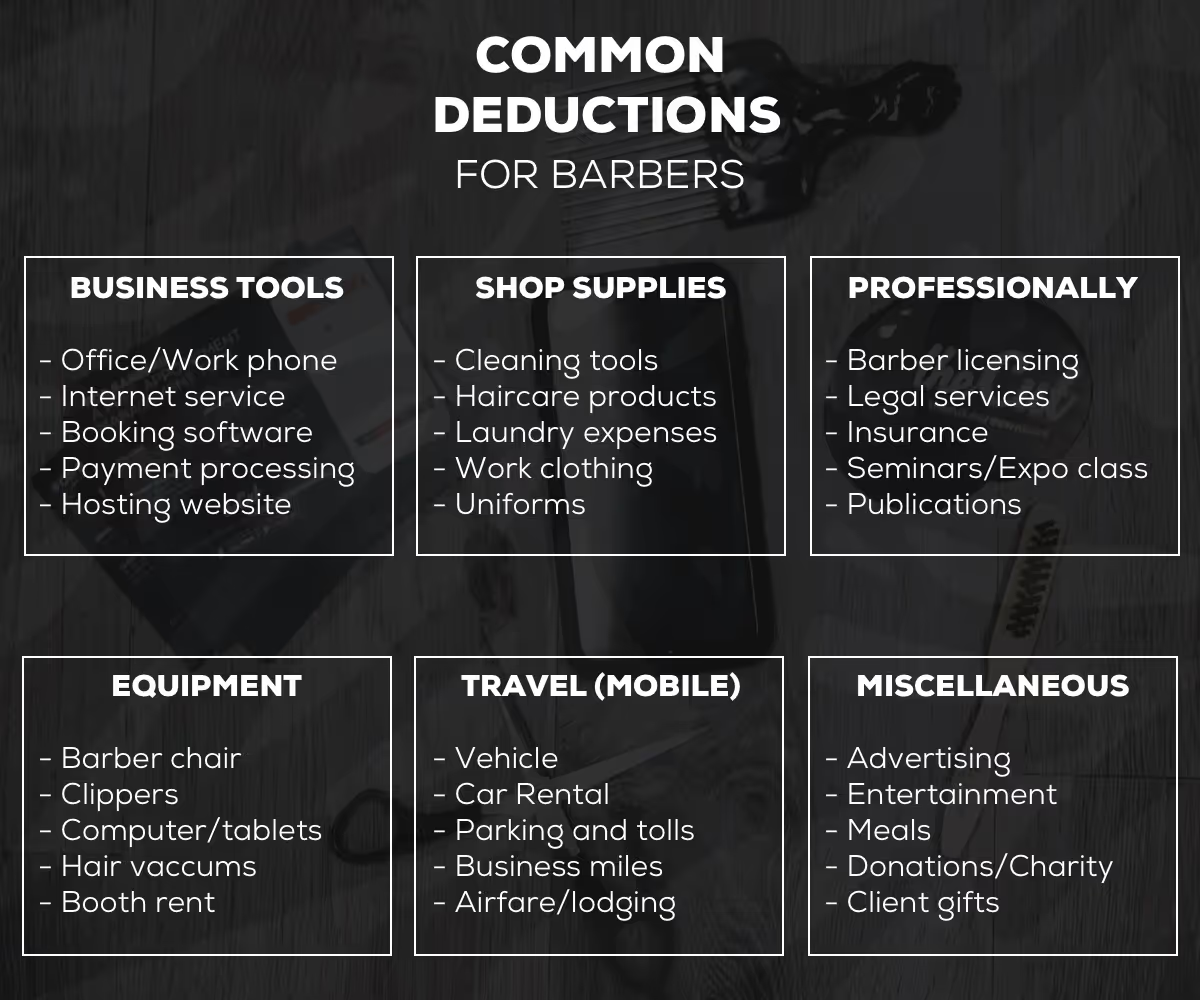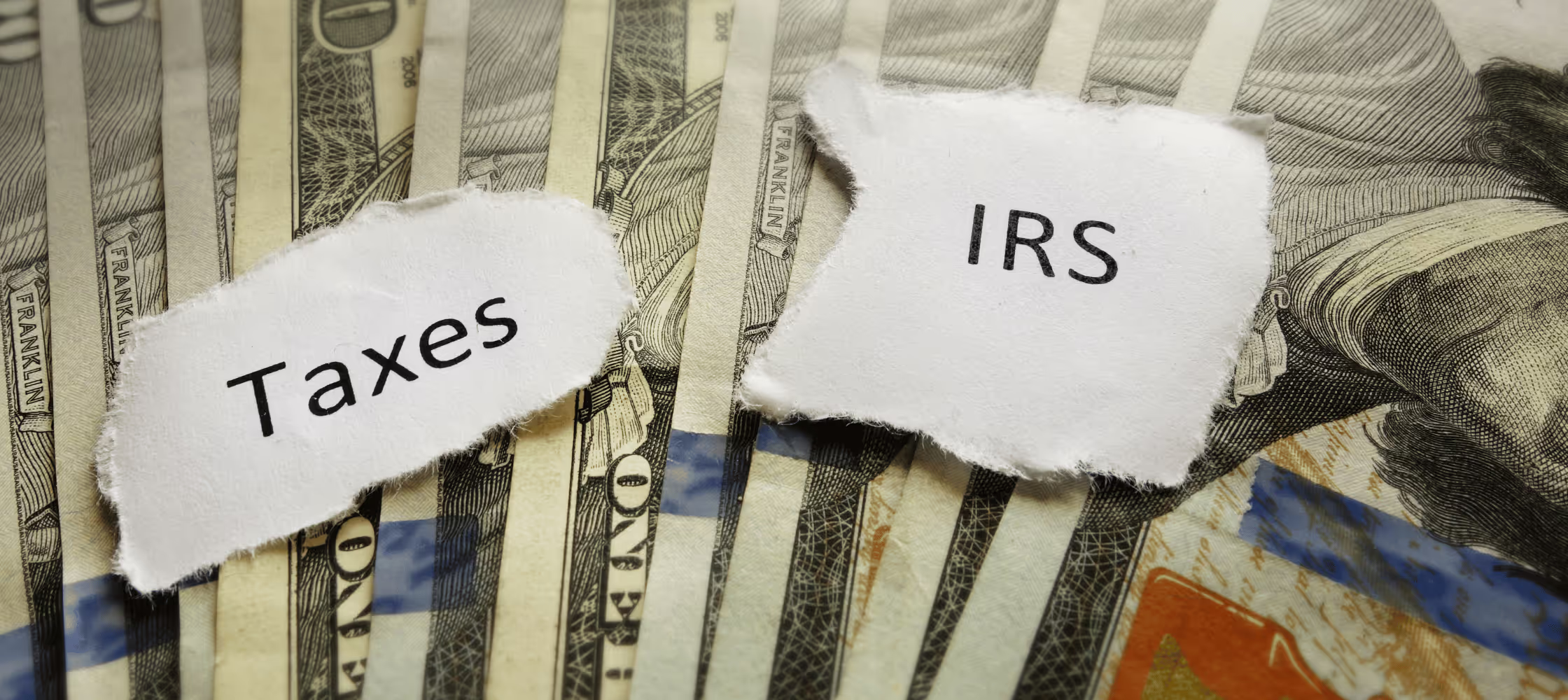Tax Prep for Barbers
As a barber, you’re not just cutting hair—you’re running a business. That means tax season can feel overwhelming, but with the right preparation, you can save money and avoid unnecessary stress. Whether you’re a shop owner or renting a chair, understanding tax deductions, self-employment taxes, and how to file correctly can help you keep more of your hard-earned money.
Understanding your tax classification
Shop Owner
You own your own physical location where you operate and offer barbering services. When starting out you elect to run your business as a sole proprietorship, partnership, or corporation. You may have employees who work for you, or you may decide to hire contractors.
Considerations: As an employer, federal law requires you to withhold taxes from your employees’ paychecks. Depending on the wages, you must withhold Federal Income Tax, Social Security Tax, and Medicare Tax. Additionally, you are responsible for the employer’s share of Social Security and Medicare Taxes, as well as potential unemployment (FUTA) taxes. You must also issue W-2 forms to employees.
Employed Barber
You work at a barbershop where you are paid either on an hourly, salary, or commission basis. Your shop owner determines how the shop and your business operate.
Considerations: If you’re an employee, your employer will withhold taxes from each paycheck. Employees cannot deduct unreimbursed work expenses on their taxes.
Contracted Barber
You work at a barbershop as an independent contractor, renting booth space from the shop owner at an agreed-upon rate and schedule.
Considerations: As an independent contractor, you are responsible for making estimated tax payments throughout the year. This includes self-employment tax (15.3%) covering Social Security and Medicare contributions. Use Form 1040-ES to make quarterly estimated tax payments.

What taxes am I responsible for?
Shop Owners
- Must withhold and pay Social Security and Medicare taxes for employees.
- Responsible for federal and state employer taxes.
Employees
- Pay state and federal taxes as withheld by employer.
- Receive a W-2 for reporting income.
Contractors
- Pay self-employment taxes.
- Report income on Form 1040, Schedule C.
- Use Schedule SE to report self-employment tax.
When do I file?
The deadline for filing your 2024 tax return is April 15, 2025.
Do I need to file?
The IRS requires filing a tax return if your income exceeds these thresholds for 2024:
- Single (under 65): $14,600
- Married filing jointly (both under 65): $29,200
- Head of household (under 65): $21,900
- Married filing separately: $5
Important tax components
Gross Income
When filing, report all income from barbering services and product sales. theCut users can request an annual income report by reaching out to support@thecut.co.
Tips
All tips received must be reported as income. Failing to report tips can lead to IRS penalties.
Expenses and Deductions
You can deduct business expenses to reduce taxable income, including:
- Equipment: Clippers, scissors, razors, and chairs.
- Booth Rent: Chair rental fees paid to shop owners.
- Supplies: Capes, gloves, disinfectants, and styling products.
- Education: Training courses and license renewals.
- Marketing: Website hosting, social media ads, and business cards.
- Travel: Mileage and gas for work-related trips.
Depreciation
Expensive purchases like barber chairs or shop equipment may be depreciated over multiple years or fully deducted in the first year under Section 179 deductions.

Planning for the 2025 Tax Year
Barbers and shop owners should plan ahead by making estimated quarterly tax payments. The due dates for 2025 are:
- Q1: April 15, 2025
- Q2: June 16, 2025
- Q3: September 15, 2025
- Q4: January 15, 2026
Missing these deadlines can result in penalties and additional interest.
Final Thoughts
To ensure a stress-free tax season:
- Keep detailed records of all income and expenses.
- Set aside money for estimated taxes if self-employed.
- File on time and use tax software or a professional to maximize deductions.
By staying informed and organized, barbers can save money and avoid IRS issues while keeping more of their hard-earned income!



